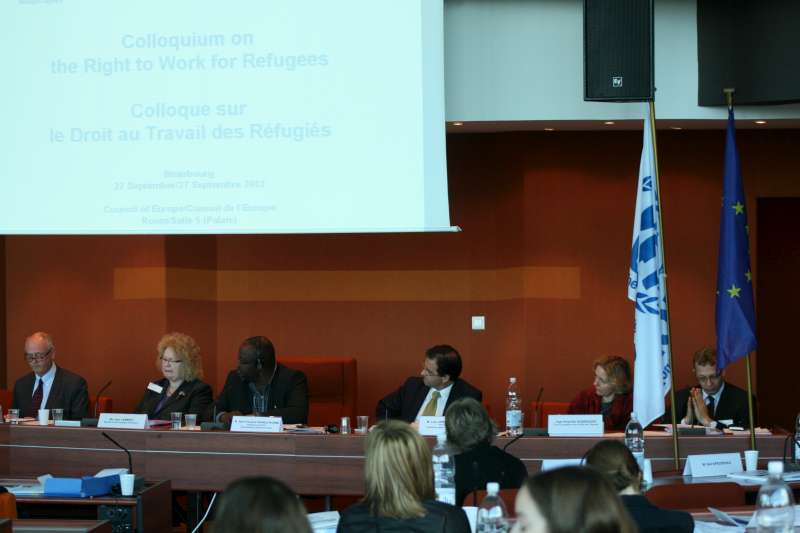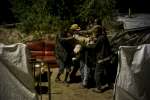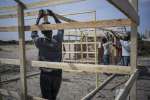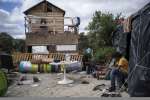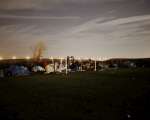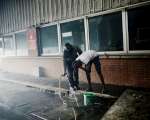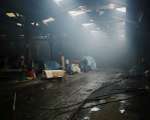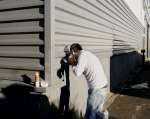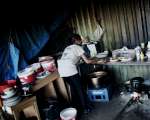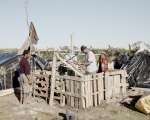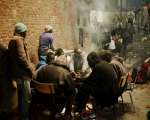Ex-refugees at Strasbourg meet tell of discrimination in finding work
News Stories, 27 September 2012
STRASBOURG, France, September 27 (UNHCR) – Former refugees attending a seminar in Strasbourg today told of the obstacles and discrimination they face in finding work in Europe despite having expert qualifications and the legal right to employment.
"In theory, recognized refugees should have unrestricted access to the labour market in their countries of asylum. In practice, the obstacles are very high," said Olivier Beer, UNHCR's representative to the Council of Europe.
The refugee agency and the Council are co-organizers of the "Colloquium on the Right to Work for Refugees." The day-long Strasbourg gathering, the first of its kind in Europe, is aimed at raising awareness among European governments about the problem and encouraging them to take action in order to facilitate the economic integration of refugees.
Robert Katianda, a 53-year-old refugee from Democratic Republic of the Congo with a degree in business administration and an impressive CV, told participants that he had relentlessly sought work suitable for a professional when he first arrived in Germany in 1996 after fleeing his homeland for political reasons.
"All my 500 job applications [over a two-year period] were either rejected or remained unanswered," said the exile, who held a high profile financial job in Kinshasa and taught accountancy at a university in the Congolese capital.
In the end, he had to settle for unskilled labour. Today he works as a technician and maintenance man for a provincial opera company. "My current work impoverishes my intellectual capacity," said Katianda, a father of two who also works in his spare time on integration issues for his local municipal council.
Keli Kpedzroku, who fled persecution in Togo in the 1990s, said he struggled with the language and faced many obstacles finding employment in his early years of exile in Germany. He decided to invest in costly courses to make himself more marketable, including a 10-month media training course for beginners – even though he was a trained journalist.
"It was a way to regain my dignity. I did not want to be seen as a parasite living off society," said Kpedzroku. But despite, this the 64-year-old revealed that he had never been able to find a full-time job since arriving in Germany. He now works part time for the church on fair trade issues and for a gold leaf company.
The experiences of Katianda and Kpedzroku, both now German citizens, are typical for refugees in Europe. Although there are no reliable figures for the numbers of employed and unemployed refugees in Europe, UNHCR believes that most of the continent's 1.5 million refugees are either out of work or employed in positions for which they are over-qualified.
"Paradoxically, many European governments have a need for a highly skilled workforce, but the qualifications that refugees bring to their asylum countries remain largely untapped," said Beer, adding that it was in the economic interest of European countries that refugees find work and no longer depend on social welfare.
"For the host country, it is an opportunity to benefit from refugees' skills and experience and we need to think further and creatively about how we can capitalize on this potential," said UNHCR Europe Bureau Director Daniel Endres. "We advise governments to include refugees as an explicitly-targeted population in state-funded integration programmes and to involve refugees in the design, development and rolling out of these programmes."




